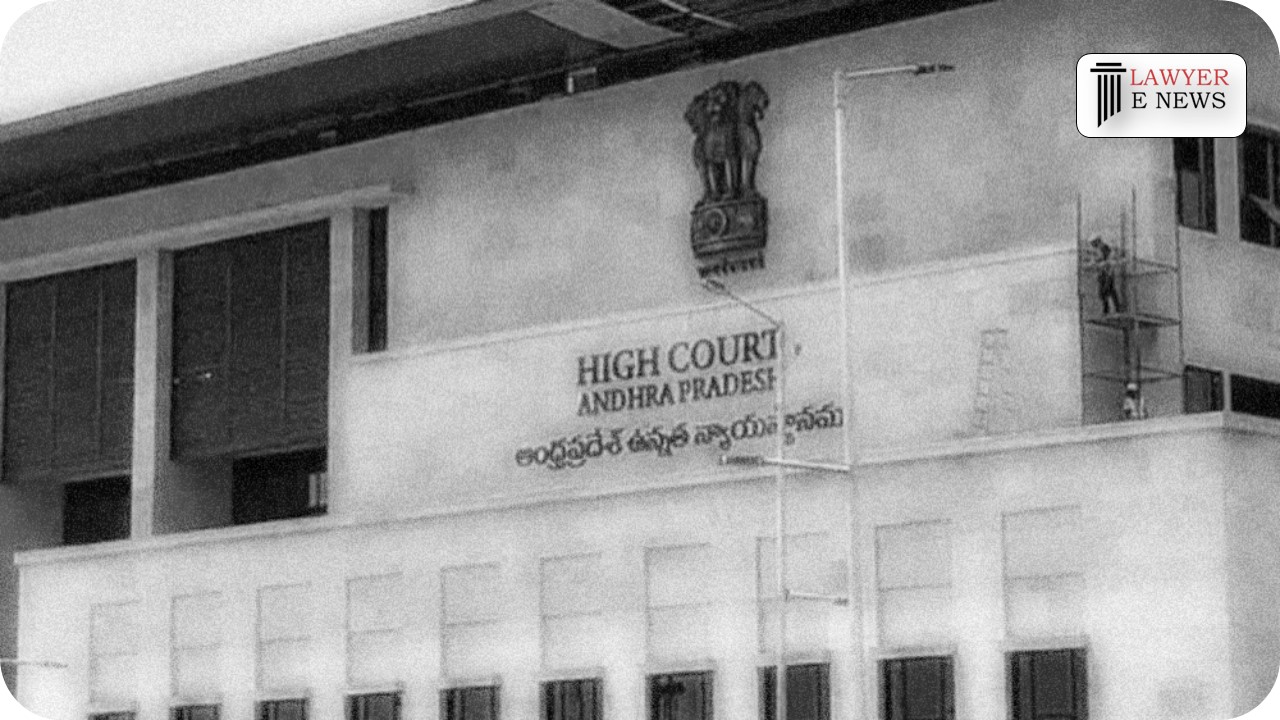-
by sayum
14 February 2026 2:22 PM



Justice B.V.L.N. Chakravarthi reaffirms the Waqf Board’s appointment of Mutawalli, denying petitioners’ claims.
The High Court of Andhra Pradesh at Amaravati has dismissed a writ petition filed by Sk Suleman and others, who sought permission to celebrate the Moharram Festival (137th Peerla Panduga) at Panja Centre, Wynchipet, Vijayawada. The bench, led by Justice B.V.L.N. Chakravarthi, upheld the Andhra Pradesh State Waqf Board’s appointment of the 6th respondent as Mutawalli, emphasizing the importance of adhering to established legal and administrative orders.
The writ petition was filed under Article 226 of the Constitution of India, seeking a mandamus to direct the respondents to allow the petitioners to celebrate the Moharram Festival from July 14, 2024, to July 18, 2024. The petitioners claimed the role of Mutawalli (custodian) of the Hussaini Lanka Peer Panja and challenged the non-consideration of their representation by the authorities. The respondents, however, cited the Waqf Board’s appointment of the 6th respondent as Mutawalli, which was confirmed by previous court orders.
The court scrutinized the Waqf Board’s proceedings issued under Section 63 of the Waqf Act, 1995, which appointed the 6th respondent as Mutawalli. Justice Chakravarthi noted that the petitioners had not challenged these proceedings in the appropriate forums, making their writ petition untenable.
The court reviewed earlier orders from various writ petitions and civil suits, which consistently recognized the 6th respondent’s status as Mutawalli. Justice Chakravarthi highlighted, “The orders dated 20.07.2023 in W.P.No.17833/2023 and 21.07.2023 in W.P.No.17224/2023 directed the municipal and police authorities to consider the representation of the 6th respondent as the recognized Mutawalli.”
The judgment emphasized the procedural propriety in administrative decisions, particularly the importance of challenging administrative orders through the correct legal channels. “The petitioners’ failure to contest the Waqf Board’s appointment in appropriate forums precludes them from seeking relief through a writ petition,” the bench observed.
The High Court’s dismissal of the writ petition reaffirms the legal process and the authority of the Waqf Board’s appointments. By directing the petitioners to respect the established appointment of the 6th respondent as Mutawalli, the judgment underscores the judiciary’s commitment to upholding procedural and substantive justice. This decision sets a precedent for future disputes involving administrative appointments under the Waqf Act, 1995.
Date of Decision: July 15, 2024
Sk Suleman and Others vs. The State of Andhra Pradesh and Others
